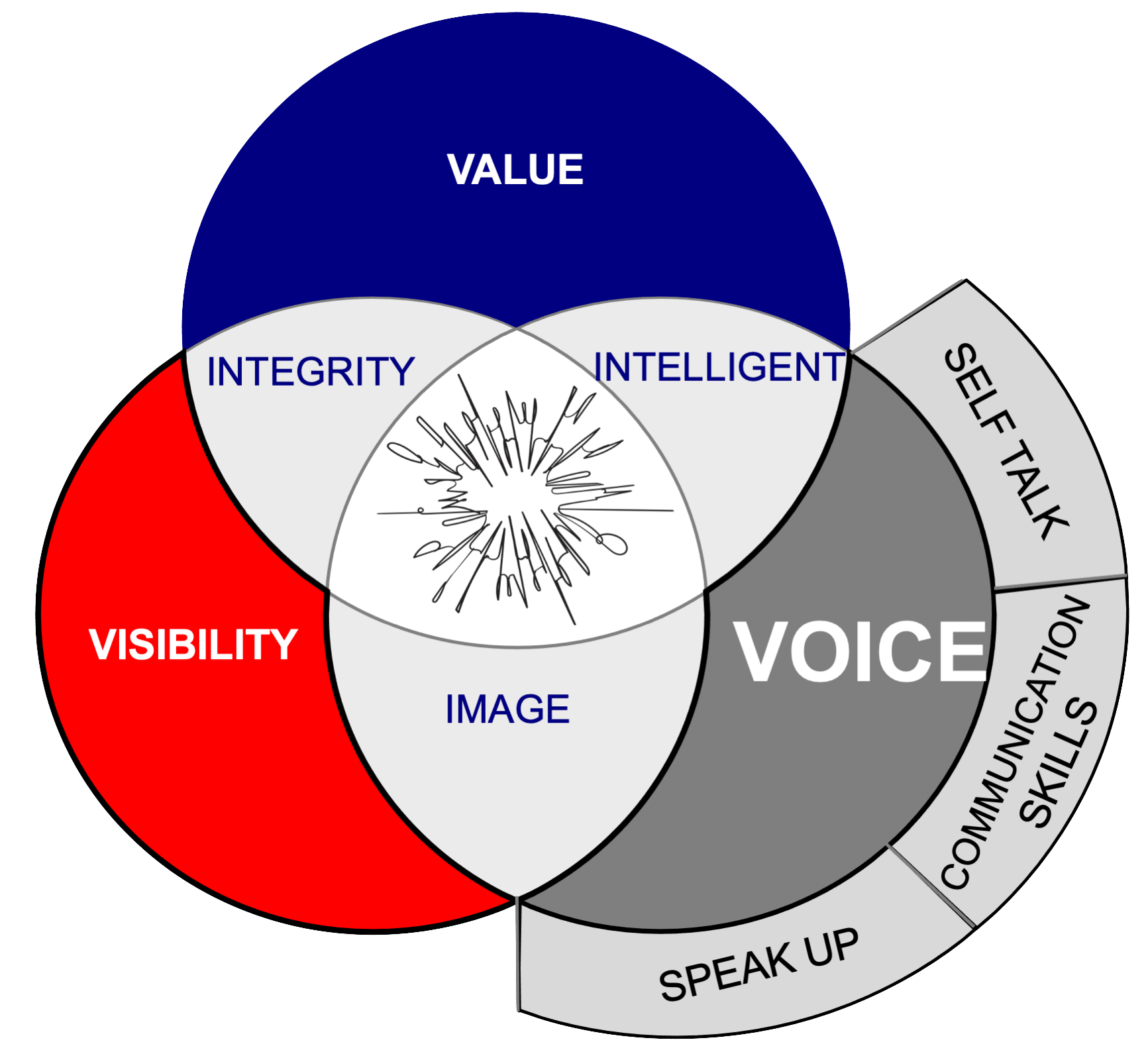Have you ever been in the situation where you were given the opportunity to speak up, to share your ideas, and when the moment arrives you didn’t quite hit it as well as you wanted.
Despite any and all planning, did you stumble or fumble to get out what you wanted to say, the way you wanted to say it?
Giving yourself a tough time, kicking yourself, is not helpful. Reflecting on your performance is important for growth, but being overly critical is taking it too far.
If you reflect on the situation where you feel you fumbled, really reflect and consider just how much attention did others pay to you as you were talking? Did people really notice or pick up on you fumbling? Did you have the spotlight effect – this is over-estimating how much attention others pay to you.
Maybe, no one could tell you were fumbling! Allow that to be possibly true.
In a similar situation, April is a Senior Project Manager who regularly speaks and presents in meetings. When discussing how she wants to amplify her influence and impact across the organisation we identified how she might use her performance in meetings as one area for greater influence.
From exploring how April presents we noticed that April often wings-it with minimal planning. With exceptional knowledge and experience April felt as though she didn’t need a lot of planning but once we reviewed a few recordings of meetings she could see she tended to ramble on, repeat herself, and not sound as confident as she’d thought.
By reviewing herself – expanding her self-awareness – and then using a presentation skills process to plan ahead she was able to be more concise; sound and feel more confident; and, as she discovered through the increase in approvals of her requests, more influential.

Instead of kicking yourself if you didn’t quite hit the mark you wanted, here are three tips to consider:
1. Put a time limit on too-tough-love
According to Social Worker and author Melody Wilding, shame, humiliation and self-criticism are similar emotions that last between 30 and 50 minutes. With that in mind, set a timer and make the deliberate choice to move forward when the timer goes off.
2. Generalise, Distort and Delete
According to neurolinguistic programming, an approach to communication and personal development, we humans tend to generalise, distort and delete information as a means of minimising overwhelm, making sense and relating or distancing ourselves from the information.
Avoid generalising: just because one meeting or situation didn’t go well – one time you fumbled, rambled or didn’t speak up, that doesn’t automatically mean it happens every time. We can tend to use generalisations in an unhelpful way, e.g. “I always stuff up these presentations!” or “I never speak up when I should.” These statements, I very much doubt, are accurate.
3. Get feedback
Ask a trusted colleague to observe you during meetings to be able to give you feedback on how you sounded, to pick up on any filler words (um’s, ah’s, so’s, okay’s) you say and any other feedback they can give you to help you improve.
Alternatively, your colleague could be a support person during the meeting, helping you by prompting you to speak up and not miss your opportunity to shine.

What do you do to not kick yourself but rather take the lesson with self-compassion?




